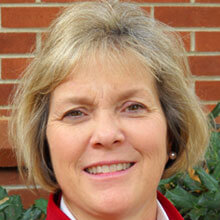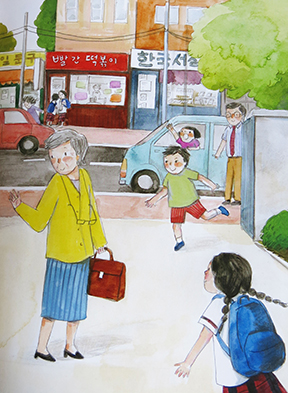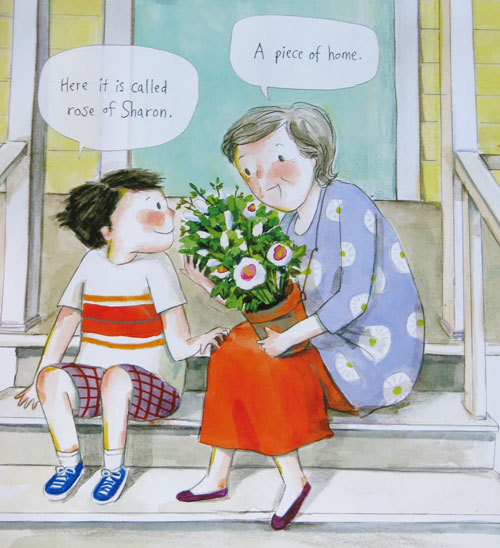New Writer Interview
Jeri Watts: A Piece of Home

Books can be safe places. Even when they are looking at some of the dark and shadowy places in life.
Interviewed by Margot Abel, Associate Director, Ezra Jack Keats Foundation
A Piece of Home is your second picture book. Meanwhile, you’ve published short stories, science fiction, middle-school fiction and a textbook. What brought you back to picture books?
I write what comes to me…a story, an idea that is “given” to me and the form the idea needs or chooses. I started telling this story in my typical form—prose—and within three pages, it just felt like a picture book. Within those three pages I was bored, so I knew a reader would be bored. I began again. This happened three times before I realized I could not tell this story in my standard way. I wondered if the story wanted to be told in a more poetic form. I did my best, and the story flowed so much better. The best thing I can do is “listen” to the story: what does it want, where do the characters want it to go? I am open to writing whatever the stories tell me they need to be.
 When you write a picture book, how do you make room for the illustrator?
When you write a picture book, how do you make room for the illustrator?
At first I just follow the story. I’m writing, I guess, for an audience of me. Then, in the revisions, I check to make sure I’ve done right by the audience of potential readers. Finally, I think about a potential illustrator. Are there opportunities for an illustrator to pull in the readers who love to sit and “read” a book through the pictures?
Your book is very timely in shining a light on an immigrant family adjusting to a new culture. What other issues do you think need to be addressed in children’s literature?
I do seem to have gotten timing right, but that was unintentional. I wrote the story because it had meaning to me. I had this one “inside” me since I taught this child [on whom the story is based] about twelve years ago, but I hadn’t found the way into the tale.
I feel there are so many important issues we need to address—just walk in a classroom and see what the children are dealing with—but it really depends on what I feel I can tell well. These issues will find a way into stories if I step out of the way and let them flow naturally, through the story that presents itself as a strong character I can explore, or a “what if” idea I can follow. For me, it doesn’t work to say, “I’ll write a story about bullying or racism.”
Was Ezra Jack Keats an influence on your work as a writer? As a teacher?
It surprises me to admit this, but I haven’t read many picture book authors as influences. I’ve read them, mostly, as a teacher of writing. So, as a teacher, yes, Keats has been influential. I used his books with my elementary students—I taught struggling readers and read his work aloud—so some of my students would see themselves on the page (as I think he hoped they would). Older students could also see examples of good writing. I would point out things he did as a writer that they could emulate. I also have used his books with my pre-service teacher students as well as my master’s students (who will be reading specialists) so that they will use them, too. Keats is a master!
 Now that you draw my attention to this, I realize I have been influenced by his work! I have always tried to write stories that recall the character of people who tend to go unnoticed by society. These are the people I am drawn to in real life. While life was teaching me this lesson, I think I was also learning from teaching Keats’s work. He wrote about and illustrated everyday children doing everyday things, and made them extraordinary (or, they were for us, his audience). He captured, for us, the chance to see that everyday matters, and that writers should see value in everyday.
Now that you draw my attention to this, I realize I have been influenced by his work! I have always tried to write stories that recall the character of people who tend to go unnoticed by society. These are the people I am drawn to in real life. While life was teaching me this lesson, I think I was also learning from teaching Keats’s work. He wrote about and illustrated everyday children doing everyday things, and made them extraordinary (or, they were for us, his audience). He captured, for us, the chance to see that everyday matters, and that writers should see value in everyday.
How do you think the EJK Book Award will affect your career as a writer?
I cannot even imagine…I cannot even hope. But it has affected me personally. I feel validated. I have many small publications, and I celebrated my books that were published…but now, I know that I have won a prestigious award. It is like having the arms of your friends wrapped around you every time you write—a stamp of approval that says, “You’ve got this.” It is recognition from peers that has my heart singing. I’m sure it will fade (everything does), but for now, it is quite a lovely feeling.
What advice do you have for hopeful young writers?
Read, read, read in the field (and other fields too) and write, write, write. Also, as is said (I paraphrase) in one of the Harry Potter books, “Don’t forget to live.” Then you have material! I am a “new” writer at an older age, but I don’t think I could have written my books without the experience and whatever wisdom I’ve gained throughout the years. And I could never have written this book without my time as a teacher. I don’t think I could have written well when I was young, I hadn’t read deeply enough; I hadn’t written enough. I’m still working at it.
